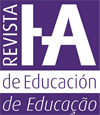Collaborative learning and information and communication technologies
DOI:
https://doi.org/10.35362/rie2912868Keywords:
collaborative learning, constructivism, learning strategiesAbstract
Man is gregarious by nature, obviously this condition affects the production and transformation of knowledge, from formal learning situations or not; The possibilities of growth and development in each individual will be determined by the type of interactions that are provided. Hence the importance of educational systems integrating cooperation into their practices, transcending individualism and competitiveness, as this will have a double impact, on the one hand it will promote learning and on the other it will serve as a model to stimulate respect, solidarity and the negotiation skills necessary for good coexistence. The new information and communication technologies stimulate interactivity, innovation and associative development of cognitive processes, based on cooperation. The role of the teacher is to design a learning environment that is functional to the educational objective and facilitate the interaction of the individual with that environment. If we understand that the 21st century individual needs more than information, learning to learn, being immersed in a context that is meaningful to them, the benefit of ICTs to this type of learning becomes evident, by promoting access to globalized information , through the WWW search engines, colleagues and teachers located at great distances, through email, chat rooms and forums and discussion lists, as well as simulation of situations, through educational software.
Downloads
How to Cite
Downloads
Published
Issue
Section
License
Any authors who publish with this journal accept the following terms:















